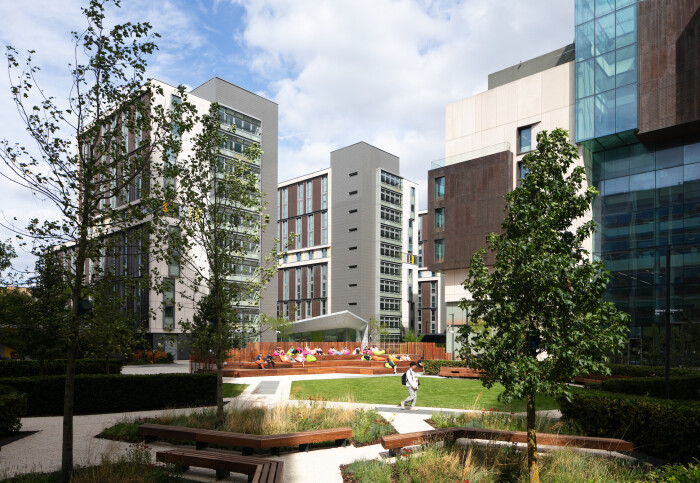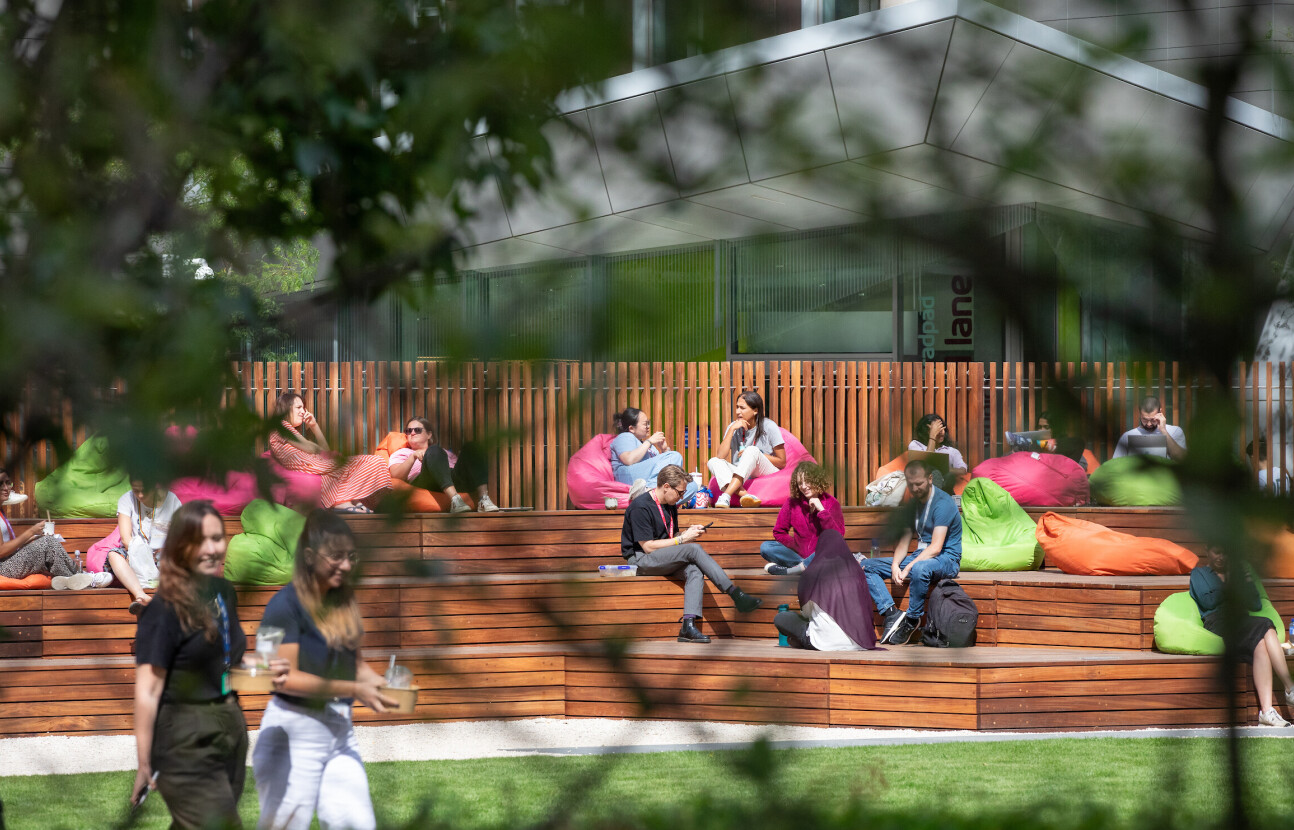Imperial opens first public garden at White City Deep Tech Campus

A new public garden, located at the heart of the campus, has been officially opened by Imperial’s President Professor Hugh Brady.
The new garden is the first permanent public space at the 23-acre White City Deep Tech Campus. It is a place for Imperial staff, students and researchers, and local businesses come together and enjoy the outdoors.
Created by GROSS. MAX., an award-winning landscape architecture practice, the garden brings half an acre of new green space to the campus. Its design was inspired by the research and innovation activity of White City Deep Tech Campus. The hexagonal shapes of the garden reference chemical structures, with the two-layered hedgerow planting design informed by bilayer cell membranes.

As part of Imperial’s commitment to ensure its campuses and research are at the forefront of sustainable best practice, the White City Deep Tech Campus is being designed to minimise its impact on the environment. Careful consideration is being given to the ways buildings use energy and water, and how they support Imperial’s net-zero carbon goals.
In creating the garden, Imperial’s own sustainability experts helped to select species, with plants and trees chosen for their climate resilience and ability to adapt to a changing environment, as well as support local wildlife.

Speaking at the opening of the garden, Imperial’s President Professor Hugh Brady said: “The rapid development of our White City Deep Tech Campus is bringing Imperial’s leading interdisciplinary research on AI, medtech, engineering biology and climate science to one of London’s most exciting, dynamic and fast-changing locations. The next phase of our development will see further expansion in mathematics, data and computer sciences, AI and machine learning and business. Outdoor spaces like this new garden are as important as the labs and buildings that surround it. The new garden provides welcoming spaces for our students, colleagues, startups and local businesses to meet, host events and find inspiration.”
The garden is built around three interlocking lawn areas, designed to provide space for outdoor events and activities. The lawns are complemented by extensive seating which offers a range of places to take a break or meet informally with colleagues and friends. The seating and tables are made from sustainably sourced Cumaru hardwood, chosen for its durability and longevity.
Around the garden, evergreen and deciduous, British native and ‘exotic’ trees have been selected to complement each other throughout the seasons and create a space which can be enjoyed all year. Key species include Pinus sylvestris (Scott’s Pine), Pinus Nigra (Black Pine), Liriodendron tulipifera (Tulip tree), Acer rubrum (Red Maple), amelanchier x lamarckii (Juneberry) and Cercidiphyllum japonicum (Katsura tree) which has a burnt biscuit smell when its leaves drop.
Taxus baccata (Yew) evergreen hedges have been planted to form enclosure around the garden, with Carpinus betulus (European Hornbeam) providing a semi-evergreen hedge offering seasonal colour and texture. Herbaceous planting is used to provide differing zones of colour and textural interest throughout all seasons.
White City Deep Tech Campus
Today, around 5,000 Imperial staff, researchers and students, and employees of innovative businesses are based at the White City Campus, which includes Hammersmith Hospital Health Sciences Campus. The garden will be a vital amenity for researchers and staff based at Imperial’s School of Public Health, Molecular Sciences Research Hub and Sir Michael Uren Hub, as well as the start-up and scale-up communities of Scale Space and I-HUB.

The garden also offers a new space for the many local people who already engage with Imperial’s activities at The Invention Rooms, a unique workshop and design studio where the local community can get hands-on experience of making and prototyping.
The Invention Rooms offers cutting edge facilities in a friendly and welcoming environment with the aim of inspiring new generations of inventors, entrepreneurs and makers from the local area and beyond. Since opening its doors in 2018, The Invention Rooms has connected with more than 4,300 local people.
Article text (excluding photos or graphics) © Imperial College London.
Photos and graphics subject to third party copyright used with permission or © Imperial College London.
Reporter
Claire Burgess
Communications Division